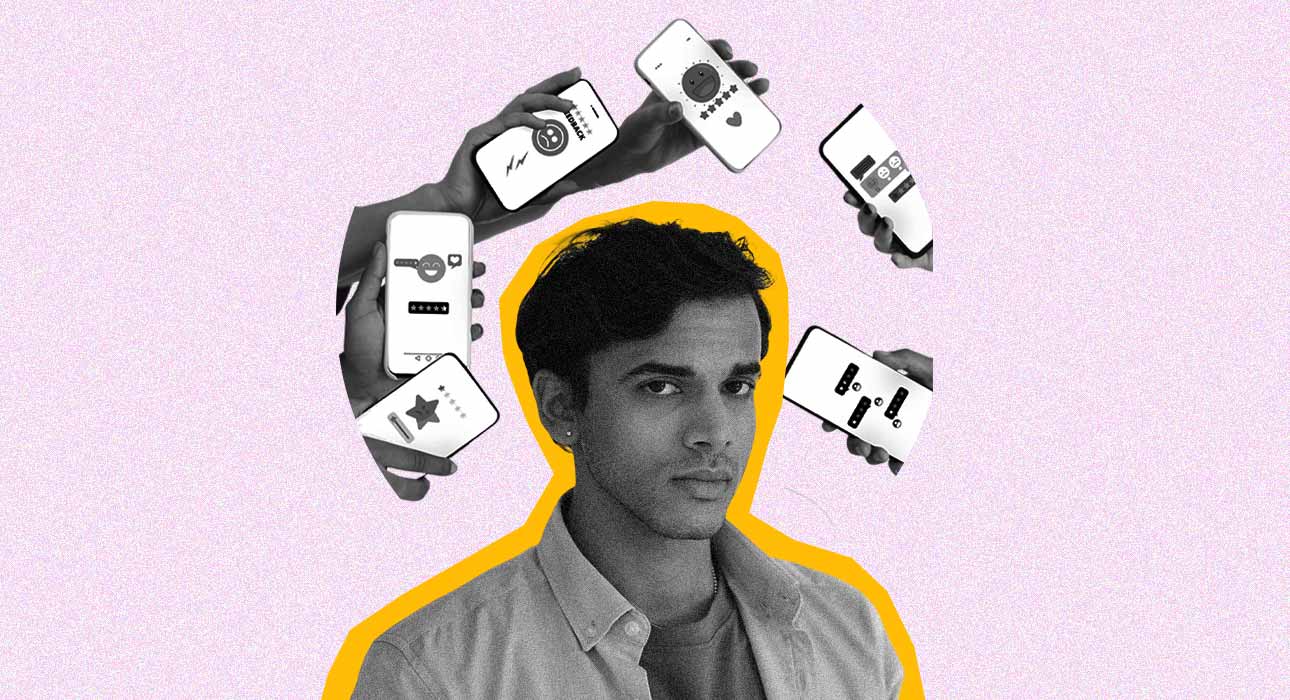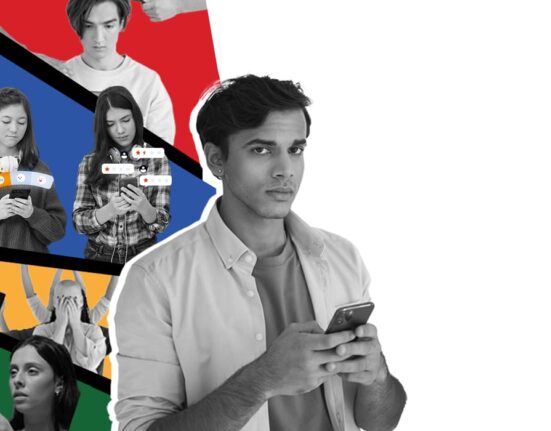Social networking sites have a profound impact on society today, directly remodelling individual and societal value systems with the help of intricate psychological processes and continuous online exposure (van Dijck et al., 2018). The remodelling is undertaken at levels of personal morality, identity, social interaction and political involvement (Nikou et al.2018). Value systems are the fundamental assumptions and principles that guide individual and communal action, often conditioned by the cultural, social and technological pressures (Kara & Tekin, 2017).
With the increasing pervasiveness of social and digital platforms within contemporary society, this dynamic is further complicated, necessitating an examination of how the platforms interact with and perhaps redefine prevailing value paradigms (van Dijck et al., 2018). The pervasive nature of social media, reinforced through the intricate algorithms, has seen an extensive redrawing of popular opinion and the dissemination of numerous divergent narratives that serve to shape communal identities (Gerlitz & Lury, 2014). The digital mediation through interaction and dissemination of the information profoundly shapes the ways that people internalise and externalise their values, often leading to shifts in political interest and consumption patterns (Hynes & Wilson, 2016).
Psychological Mechanisms of Value Reshaping
Social media’s influence on values is deep-seated within the mechanisms that these platforms exert on the human brain, especially concerning social cognition and the reward system (Gerlitz & Lury, 2014).
Read More: Exploring the Neural Correlates of Social Cognition
Impact Upon Self-Concept and Identity
Adoption of social media significantly impacts the formulation and direction of the individual’s self-concept and, therefore, his or her personal valuation system (Brännback et al., 2016).
1. Upward Social Comparison
The users are seen to resort to upward social comparison frequently, comparing themselves negatively to others’ well-curated, ideal images of themselves (Kara & Tekin, 2017). Exposure to those apparently finer achievements time and again results in diminishing self-esteem, a darker self-concept and lower self-concept clarity, i.e., users become more confused about themselves. Losing a stable self is seen as potentially leading to losing stable values (Nikou et al.,2018).
2. Addiction and Uncertainty
Social media interaction is consolidated through the reward network of the brain, with positive social reinforcement (such as likes or comments) that is a social reward, leading to a habitual or addicted pattern (Brännback et al., 2016). The addicted trend, with the ever-present threat to the stability of the self through negative comparisons, heightens psychological uncertainty (Aljehani, 2019).
Read More: Social Media Addiction Among Children and how to deal with it
Shift Towards Anxiety-Based Values
The growing uncertainty driven by social media usage and the complexities of the modern world leads to a cognitive response of prioritising “anxiety-based” values. These values function primarily to protect the self against threat and uncertainty (Aljehani, 2019).
- This shift results in individuals gravitating toward Conservation values (Tradition, Conformity, Security) and Self-Enhancement values (Power, Achievement), often at the expense of “anxiety-free” values like Openness-to-Change (Self-Direction, Stimulation) and Self-Transcendence (Universalism, Benevolence) (Kara & Tekin, 2017).
- The limited, asynchronous nature of online communication, lacking nonverbal cues, can lead to the dehumanisation of communication partners and increased hostility (Chen, 2014). This hindered social understanding further contributes to a convergence of values towards self-protective, anxiety-based priorities and reduces the plurality of opinion (Swigger, 2012).
Impact on Personal Values
Studies about students among Gen Z show tangible shifts in their values with social media use, reflecting an overwhelming influence of online time spent to shape individual values (International Journal of Research and Innovation in Social Science, 2025).
Positive Forces for Self-Transcendence and Openness to Change
Exposure to social networking can promote values for individual development and concern for other people (Shafie & Nayan, 2019).
- Openness to Experience: Social media facilitates openness to other ways and thoughts, experimentation and curiosity for students (Kara & Tekin, 2017). It fosters critical thought and intellectual curiosity through exposure to the other person’s perspective.
- Compassion: The platforms appeal to the users to be compassionate through the sharing of other users’ personal testimonies, opportunities and selfless actions. Occasionally, this motivates the users to donate, help and adopt prosocial and communal actions (Shafie & Nayan, 2019).
- Self-Development: Motivational booklets and rags-to-riches stories viewed on the internet encourage the student to grow personally, to aspire to and to ask what their strengths and flaws are (Brännback et al., 2016).
Adverse Impact and Depletion of Cultural Value
The widespread usage of social networking has the potential to negatively impact cultural values and cause emotional suffering (Aljehani, 2019).
- Unrealistic Expectations: Exposure to unrealistic standards promoted by influencers can lead to feelings of inadequacy and psychological pressure among youth (Rockaway Capital, 2023).
- Time Respect: Excessive social media use has been found to have a moderately negative impact on time respect among university students, often leading to procrastination, delay of assignments and loss of control over time management (Aljehani, 2019).
- Privacy and Family Ties: Social media use poorly affects others’ privacy and family communication. For example, research in Saudi Arabia exhibited weak effects on family communication, although some cultures are very tight with family ties regardless of the usage of technology (Al-Mosa, 2015).
- Health Problem: Overuse of social networking results in various psychological problems and is associated with mental problems, anxiety and depression (Kara & Tekin, 2017).
Shifts in Societal and Political Values
Social media has profoundly changed the social fabric through the alteration of the mode of communication and mobilisation (Wibowo et al., 2024).
- Social and Political Transformation: Social media is also regarded as a powerful instrument for political and social transformation. It enables individuals to connect, mobilise and organise in large numbers against authorities. It is essential for driving educational, social, industrial and political transformation (Shafie & Nayan,2019).
- Citizenship and Communication: In some studies, social media showed a positive impact on citizenship and communication values (Al-Mosa, 2015).
- Contrasting Political Values: Conversely, other research suggests a significant negative relationship between social network use and the political, religious, cultural and social components of students’ value systems (Swigger, 2012).
- Influence on Consumers: The relationship between deeply held values and marketplace behaviour is also reshaped. For example, highly materialistic individuals tend to have stronger negative individual norms regarding environmentally friendly food consumption, possibly because these purchases are difficult to display publicly, suggesting a value conflict regarding outward consumption versus pro-environmental behaviour (Hynes & Wilson, 2016).
Promoting Responsible Use and Ethical Behaviour
In view of the dual nature of social networking, i.e., positive potential for change and susceptibility to psychic damage, the need to promote ethical sensitivity, cyber literacy, and judicious usage is pressing (van Dijck et al., 2018).
1. Emphasis on Proper Use
With the overall perception that whatever is utilised within limitations and the proper direction is alright, social media also comes under this category. When used with a positive twist, social media is alright and safe. It allows distribution of awareness for each front (educational, political, cultural, social, and economic) (Shafie & Nayan, 2019).
2. Ethical Compliance
Despite the presence of harmful content, users do try to follow strong ethical approaches for communication. One study found that participants strongly agreed that social media use should adhere to religious values and principles, showing high commitment to truthfulness and communicating in a good manner when posting updates and replies. This positive impact on communication values was reported as large (Al-Mosa, 2015).
3. Institutional and Professional Role
Experts and social workers suggest that social media should be introduced to foster the adoption of it as a learning and developmental tool, taking advantage of the endless knowledge that is to be unearthed. More studies on social media are needed to enable social workers to remain abreast of emerging technology and to build expertise around the misapplication and use of it (Khorshidi & Esmaeili, 2018).
Read More: Four Ways Social Media Can Be Good for Mental Health
4. Strategy for Intervention (Digital Literacy)
Recommendations to minimise harm include the establishment of collaboration between teachers, parents and sites to facilitate responsible use. Teacher participation is also encouraged to include training for media literacy for the benefit of the students to develop further critical evaluative skills. Parents and teachers should periodically guide and monitor children and students. Furthermore, implementing a check and balance mechanism in educational institutions to monitor social media use is suggested. National guidelines are recommended to promote responsible social media use among adolescents (Wibowo et al., 2024).
Conclusion
In this vast, never-ceasing social media universe, our ideals never remain stationary. They change, crash and metamorphose to the beat of our online existence. While what once required generations to alter can now be altered with a moment gone viral, we find ourselves inside the deluge of perfectly crafted personas, immediate confirmation and unlimited connectivity. The boundaries blur between expression and doubt. And here, in this very fluidity, promise and threat stir.
Social media, simply put, is the mirror of humankind, its pride and compassion, curiosity and fear. It has the power to move humans to compassion and openness, to allow humans to transcend boundaries and transcend inherited modes of being. However, it can also foster our narrow focus, anxiety, comparison and conformity. In the end, the medium we are viewing is not simply dictating the way we are viewing the planet; it is unwittingly training us how to value the planet. Here, the point is not to oppose change, but to note it, to understand the values that support us, even if we look at the moving ones.
Question Explained by Experts
Question: How can we reduce the negative impact of social media on personal and societal values while encouraging positive traits like compassion and openness?
Ans: According to Counselling Psychologist Anjali Seth, for reducing the negative impact of social media on personal and societal values, keep some points in mind
- What you are reading on social media is not always true/factual/accurate. So, after reading, do some research before applying/comparing your personal and societal values.
- If you want to apply certain values, first ask yourself why you need them. Is it required or just matches with your fantasy and desires?
- Do a reality check after the implications. If you feel it works and helps you grow in life without violating others’ rights, you can go ahead.
- What you seek is seeking you to follow the news, reels, channel and podcast which are positive and provide a constructive perception of life and life events.
- Comment or post only what you believe and respect others’ opinions. Compassion comes from within, so imagine facing the same situation and then responding to it.
When we become wise and aware of our social media information consumption, it helps us in learning positive traits like openness and compassion.
FAQs
1. How exactly is social media changing our value systems?
Social media has become a huge part of our daily lives, and it quietly shapes what we believe, value and care about. By constantly exposing us to others’ opinions, lifestyles and ideals, it influences how we define success, morality, identity and even what’s “normal.” The more we scroll, the more our ideas about what’s important in life evolve, sometimes for the better, sometimes not.
2. What happens to our self-image and mental health because of social media?
Platforms like Instagram or TikTok often make people compare themselves to others, especially to the filtered, “perfect” versions we see online. This can lower self-esteem and create confusion about who we really are. Over time, the brain’s reward system gets hooked on likes and comments, leading to addictive scrolling, anxiety and even a sense of emptiness or instability in one’s values.
3. Does social media have any positive influence on personal growth?
Absolutely. Despite its downsides, social media can encourage openness and empathy. It exposes people to different cultures, ideas and causes, helping them become more compassionate and curious. Inspirational content, personal stories and educational posts can push users to reflect, learn and even work on their self-development. So, when used mindfully, it can be a tool for growth.
4. How is social media affecting our social and political values?
Social media is a double-edged sword in this area. On one hand, it helps people come together for social and political causes, spread awareness and stand up for justice. On the other hand, it can deepen divisions, spread misinformation and shape opinions based on algorithms rather than truth. It’s also changing how we consume and express our values, influencing what and how we buy, vote or support.
5. What can we do to use social media more responsibly?
The key is balance and awareness. Schools, parents and communities should teach digital literacy so that people can think critically about what they see online. Setting personal limits, fact-checking and maintaining ethical communication online all help. Social media isn’t the enemy, it’s how we use it that matters. When approached thoughtfully, it can inspire empathy, learning and social progress instead of anxiety or division.
References +
Al-Mosa, N. A. (2015). Role of social networks in developing religious and social values of the students of the World Islamic Sciences & Education University. International Education Studies, 8(9), 126-137. https://doi.org/10.5539/ies.v8n9p126
Aljehani, H. A. (2019). Impact of social media on social value systems among university students in Saudi Arabia. International Journal of Education and Practice, 7(3), 216–229. https://files.eric.ed.gov/fulltext/EJ1239322.pdf
Brännback, M., Nikou, S., & Bouwman, H. (2016). Value systems and intentions to interact in social media: The digital natives. Telematics and Informatics, 34(4), 365–381. https://doi.org/10.1016/j.tele.2016.08.018
Chen, M. (2014, February). Values in design and human-computer interaction. In Proceedings of the 17th ACM Conference on Computer Supported Cooperative Work and Social Computing (CSCW). University of Washington. https://faculty.washington.edu/garyhs/docs/chen-CSCW2014-values.pdf
Gerlitz, C., & Lury, C. (2014). Social media and self-evaluating assemblages: On numbers, orderings and values. Distinktion: Journal of Social Theory, 15(2), 174– 188. https://doi.org/10.1080/1600910x.2014.920267
Hynes, N., & Wilson, J. (2016). I do it, but don’t tell anyone! Personal values, personal and social norms: Can social media play a role in changing pro environmental behaviours? Technological Forecasting and Social Change, 111, 349–359. https://doi.org/10.1016/j.techfore.2016.06.034
Kara, A., & Tekin, H. (2017). The investigation of human values perceived from the use of social media of secondary school students. Universal Journal of Educational Research, 5(11), 1912-1925. https://doi.org/10.13189/ujer.2017.051108
Khorshidi, H., & Esmaeili, S. (2018). The impact of social media to value added in knowledge-based industries. International Academic Studies on Education (IDJE), 10(1), 44–57. https://iase-idje.ir/files/site1/user_files_6d0946/admin-A 10-1-44-c36b777.pdf
Nikou, S., Mezei, J., & Brännback, M. (2018). Digital natives’ intention to interact with social media: Value systems and gender. Telematics and Informatics, 35(2), 421–435. https://doi.org/10.1016/j.tele.2017.12.019
Roblek, V., Pejić Bach, M., Meško, M., & Bertoncelj, A. (2013). The impact of social media to value added in knowledge-based industries. Kybernetes, 42(4), 554–568. https://doi.org/10.1108/K-01-2013-0014
Rockaway Capital. (2023). Social media and values (completed with figures). Rockaway Capital Group. https://www.rockawaycapital.com/wp content/uploads/2023/01/social-media-and-values-completed-with-figures.pdf
Shafie, L. A., & Nayan, S. (2019). The role of social media in social change in society. Journal of Positive Psychology and Artificial Intelligence, 1(2), 44–53. https://readersinsight.net/JPVAI/article/download/481/485
Swigger, N. (2012). The online citizen: Is social media changing citizens’ beliefs about democratic values? Political Behavior, 35(3), 589–603. https://doi.org/10.1007/s11109-012-9208-y
The influence of social media on the personal values among Gen Z students – International Journal of Research and Innovation in Social Science. (2025, July 17). International Journal of Research and Innovation in Social Science. https://rsisinternational.org/journals/ijriss/articles/the-influence-of-social media-on-the-personal-values-among-gen-z-students/
van Dijck, J., Poell, T., & de Waal, M. (2018). The platform society: Public values in a connective world. Oxford University Press. https://books.google.co.in/books?id=wLhwDwAAQBAJ
Wibowo, T. O., Syafuddin, K., & Elmada, M. A. G. (2024). The study on the role of social media in social change in society. ProTVF: Jurnal Ilmu Komunikasi, 8(1), 12–24. https://www.researchgate.net/publication/367559434_The_Study_on_the_Role _of_Social_Media_in_Social_Change_in_Society













Leave feedback about this